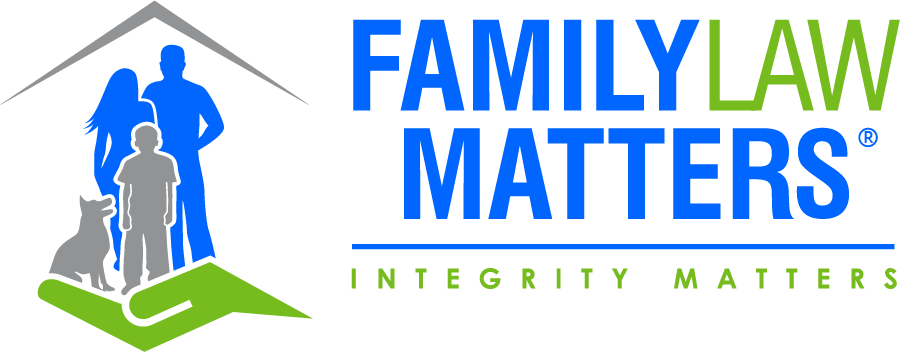An expert lawyer is essential in every divorce case, but having him or her on your side isn’t enough. If you want to work toward your desired objective, you must also be able to communicate effectively. So, before you meet with your lawyer, consider these suggestions for communicating as efficiently as possible during your case.
Make sure to pay close attention to your divorce attorney.
You most likely spent a significant amount of time selecting the correct attorney, so it makes sense to listen to what he or she has to say regarding your case. That may seem obvious, yet many individuals do not follow this advice. You can deviate from the norm by paying close attention when your lawyer discusses the laws that apply to your situation. If you have any questions or don’t understand any of the legal terms used by your lawyer, simply ask for clarification. It’s better to spend a little more time actually understanding your argument than to waste everyone’s time pretending to.
Give Your Attorney the Facts
Your lawyer is well-versed in critical materials that may impact your case, but so are you. You are the only one who knows where the critical papers are kept and how to contact witnesses in your case. Your lawyer requires your assistance in comprehending your case, therefore, provide any relevant information right away. If you leave out important facts, your lawsuit will take longer to resolve, costing you more money in the process. Remember that the facts do not contain insults to your ex spouse. Your lawyer does not want or need to know how abusive your ex is. This will not help your case and will be a waste of your time. Keep your rants to your friends or therapist, and stick to the facts while speaking with your lawyer.
Make Certain That Your Expectations Are Realistic
You need a lawyer on your side if you want a high chance of receiving the results you want. However, even if you employ the greatest divorce lawyer you can find, there is no assurance that you will obtain the outcome you desire. Most divorces necessitate some compromise, which means you’re unlikely to obtain the home, the vehicles, and complete custody of the children simply because you want them. No lawyer can credibly guarantee you this. However, your lawyer may work hard to ensure that you understand your case and then devise a plan that will offer you a possibility of having at least part of your demands granted. Again, it boils down to listening to your counsel. Stop listening to friends and relatives predict what will happen since they lack the expertise and experience that your attorney possesses. It might be tough to hear what you need to hear from your lawyer instead of what you want to hear.
Remember that your perspective is not the entire story.
You may have strong feelings about your ex-spouse, but they are just that: feelings, not facts. Your ex-spouse has a distinct point of view, and it’s important to attempt to understand where he or she is coming from. After all, the better you understand the other party, the easier it is to forecast what he or she will say so that you and your attorney can respond. So, think about how your ex-spouse feels and why, and then you and your lawyer can create your case around that knowledge. Consider the reasons behind your ex’s desire for full custody of the children since he or she believes you cannot create a secure environment for them. Even if you believe it is erroneous, investigate why your ex may believe your house is unsafe for the children and then focus on producing evidence that this perspective is inaccurate.
Know What the Attorney-Client Privilege Is… and what it is not
If you don’t understand what attorney-client privilege is, it’s difficult to communicate effectively with your divorce counsel. In principle, attorney-client privilege states that any confidential communication with your lawyer for legal advice shall be kept confidential. This is to encourage you to be open and honest with your attorney while you work on your case together. However, it does have several limitations that you may not be aware of.
For example, this permission exclusively covers confidential correspondence. So, if you email or contact your attorney, or arrange a meeting, anything you say will be kept confidential. This also applies to private conversations with your lawyer’s employees. However, if you decide to inform everyone you know about a certain component of your case and then become upset when your ex-spouse finds out, you can’t claim attorney-client privilege for failing since what you said no longer remained secret once you told other people about it. Similarly, if you chat to your lawyer on a loudspeaker while other people are nearby, or if you talk to your lawyer about your case in a public place in a loud voice, you can’t expect everything to be kept secret.
Furthermore, the attorney-client privilege only applies to conversations in which you are attempting to seek legal advice. As a result, if you decide to ask your lawyer for guidance on a kitchen makeover because he or she recently completed one, that information may not be kept secret. Finally, if you contact your lawyer for assistance with fraud or any other form of crime, your discussions will not be secret. This implies that if you call your lawyer to figure out how to hide any assets during the divorce, you might wind up in legal trouble, so don’t do it.
Now that you understand how to interact with a lawyer, it’s time to locate one you can rely on. Contact the Law Offices of H. William Edgar immediately to set up a free appointment to meet with our team and discuss your case.
Here are the top ten questions you should ask your divorce lawyer
- Do you specialize in divorces, or do they make up a small percentage of your practice? How long have you been a family law practitioner? What number of family law cases have you handled? Do you consider yourself a “qualified family law specialist?”
- What is your approach to my case? How long will it take for my case to be resolved?
- How long does it take you to respond to phone calls? In the event of an emergency, how can I contact you? What constitutes an emergency in your opinion?
- Will my case be handled by anybody else in your office? What kind of background do they have? Can I meet with them?
- How will you bill me? How much do you charge each hour? Do you bill for time spent with other lawyers, paralegals, and/or secretaries? If so, what is the rate? What is your initial retainer?
- What costs (other than your own) do you anticipate (for example, private investigators, forensic accountants, physicians, and/or psychiatrists), and how will you charge me for them?
- What do you think the overall cost of this divorce will be? (Don’t be shocked if most divorce attorneys refuse to answer this question because the cost of the divorce is heavily influenced by the degree of contention in your case.) However, how attorneys respond to this question may assist you assess them. An honest attorney will frequently respond that estimating fees in advance is tough. An attorney who quotes you a ridiculously cheap fee may be attempting to gain your business).
- Do you allow me to bargain with my husband/wife directly? How can I reduce the expense of my divorce? Is there anything I can do myself to reduce the amount you’ll charge me?
- Based on what you know about my case, how do you think a court will rule?
- What can you do to assist me in understanding the tax implications of the decisions I will have to make?




